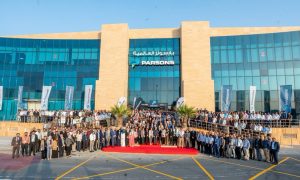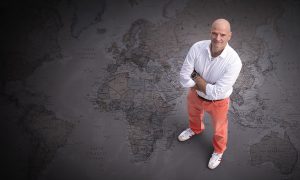Wolffkran achieves climate-neutral certification in Germany
Tower crane-maker offsets emissions with purchase of 8,070 climate protection certificates for 2020-21 and also plans other climate protection projects

Wolffkran has announced the achievement of an important green credential, becoming one of the first manufacturers in the industry to be certified in Germany as a climate-neutral company.
The global tower crane heavyweight said the step is a continuation of its drive to “live up to its pioneering reputation”, with Andreas Kahl, MD, Wolffkran Germany, announcing several other climate initiatives.
“As an industrial company, we’re keenly aware of our special responsibility to future generations. This certification is an important step on our path towards a climate conscious business,” said Kahl.
The certification was conducted by Fokus Zukunft GmbH & Co. KG, an independent sustainability consultancy, which evaluated the CO2 emissions at Wolffkran’s two production sites in Heilbronn and Luckau and its R&D centre in Ilsfeld, finding a total footprint of 4,035 tons of CO2-equivalent pollutants. The manufacturer added that in comparison, the average German generates around 11t of CO2 annually.
Wolffkran is offsetting the identified annual greenhouse gas emissions with the purchase of 8,070 climate protection certificates for the years 2020 and 2021, making it one of the first manufacturers in the industry to voluntarily compensate for its emissions in accordance with the Clean Development Mechanism defined in the Kyoto Protocol.
“By purchasing these certificates, we’re supporting a hydropower project in Uganda. We selected this UN-certified and TUEV-audited project very conscientiously, and strongly believe it will make a positive contribution to protecting the climate,” Kahl said.
Carbon credits are only one aspect of Wolffkran’s planned commitment to mitigate climate change and the manufacturer said it has also planned other climate protection projects regionally, which include the installation of solar panels on the roofs of its manufacturing plants, converting its production facilities to green energy and continuing to educate its staff on how to conserve energy and resources in their day-to-day work, among others.
“I firmly believe that by tracking and visualizing our CO2 output, we can continuously sharpen our awareness, which will lead to a major mindset changes and new ideas surrounding climate protection – both within our company as well as for our customers, partners and ultimately our entire industry,” said Kahl.
























